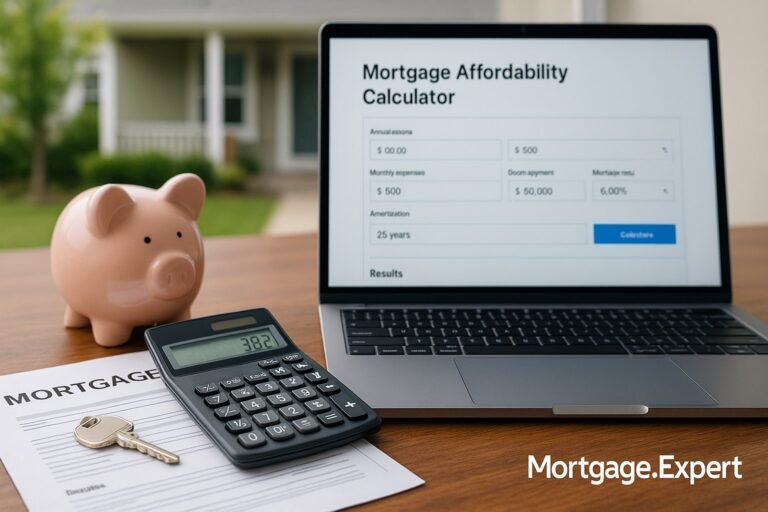
How Much Income Do You Really Need To Buy a Home in Toronto?
Toronto’s real estate market has long been seen as both aspirational and intimidating. With average home prices nearing $1.2 million in 2023, the dream of homeownership might feel out of reach — but is it really? This guide will help you figure out exactly how much income you need to buy a home in Toronto, what costs to factor in, and how to plan your way there.
Whether you’re a first-time buyer or planning an upgrade, understanding the income requirements and affordability rules can help you make smart, stress-free decisions.
Understanding the Toronto Housing Market
Toronto consistently ranks as one of the most expensive cities in Canada, especially within the downtown core. According to the Toronto Regional Real Estate Board (TRREB), the average home price in the GTA was $1,196,101 as of May 2023.
But not all neighbourhoods are priced equally. Homes in the city centre often exceed $1.5 million, while townhomes and condos in the suburbs may cost significantly less.
Also, government policies like the 20% foreign buyer tax, introduced in 2022, continue to influence demand — especially from international investors. Mortgage stress tests and tighter lending rules also mean buyers need to show stronger income to qualify.
What’s the Minimum Income Needed To Buy a Home in Toronto?
To calculate the minimum income required, lenders use a rule of thumb: housing costs should not exceed 30–39% of your gross monthly income. That includes mortgage payments, property taxes, and estimated utilities.
Let’s say you’re looking to buy a $1 million home. Assuming:
- 20% down payment ($200,000)
- $800,000 mortgage
- 5.25% interest rate (stress-tested)
- 25-year amortization
You’d be looking at a monthly mortgage payment of roughly $4,750. Add about $700 for property taxes and $150 for heating, and your total housing cost would be around $5,600/month.
To stay within a 39% gross debt service (GDS) ratio, you’d need an annual income of at least $172,000–$180,000.
For a condo priced at $700,000, your income requirement would be closer to $120,000–$130,000, depending on fees.
Key Factors That Affect Minimum Income Requirements
Down Payment Size
The more you put down, the smaller your mortgage — and the lower your income needs. For homes over $1 million, a minimum 20% down payment is mandatory.
Interest Rates
Higher rates mean higher monthly payments. Even a 0.5% difference in rates can raise your payment by hundreds of dollars.
Property Taxes
Toronto has relatively low property tax rates (between 0.66% and 1.13%), but high property values make the totals significant.
Utilities and Heating
Most lenders factor in $150/month for heating into your affordability. This is part of your GDS ratio.
True Cost Breakdown of Homeownership in Toronto
Here’s what goes into your monthly and yearly housing costs:
- Mortgage Payments: Based on loan size and interest rate
- Property Taxes: Around 0.66–1.13% of assessed value
- Home Insurance: ~$1,000/year
- Utilities: Gas, water, hydro (varies by property size and usage)
- Maintenance: 1% of home value annually is a safe estimate
- Condo Fees: If applicable, these can add $300–$800/month
🏡 Monthly Costs for Buying a Home in Toronto
Here’s what monthly costs might look like for homes priced at $800K, $1M, and $1.2M in Toronto, assuming 20% down and a 5-year fixed rate.
| Cost Component | $800,000 Home | $1,000,000 Home | $1,200,000 Home |
|---|---|---|---|
| Down Payment (20%) | $160,000 | $200,000 | $240,000 |
| Mortgage Amount | $640,000 | $800,000 | $960,000 |
| Monthly Mortgage (5.24% / 25 yrs) | $3,826 | $4,783 | $5,739 |
| Estimated Property Tax (0.66%) | $440 | $550 | $660 |
| Home Insurance (est.) | $100 | $110 | $120 |
| Total Monthly Cost | $4,366 | $5,443 | $6,519 |
Saving for a Down Payment
For a $1 million home, a 20% down payment is $200,000 — no small feat.
Tips to get there:
- Automate savings to a high-interest account
- Use your RRSP Home Buyers’ Plan (HBP)
- Open a First Home Savings Account (FHSA)
- Explore Ontario-specific grants and incentives for first-time buyers
Mortgage Options for First-Time Buyers
Even if you don’t have a massive income, some strategies can help you qualify:
Fixed vs Variable
Fixed gives payment stability; variable may start lower but comes with risk.
Co-Buying or Co-Signing
Buy with a friend, partner, or family member — or get someone to co-sign your mortgage.
Longer Amortization
A 30-year amortization can reduce payments (only available on uninsured mortgages).
Additional Costs First-Time Buyers Forget
- Closing Costs: Budget 3–5% of home price
- Land Transfer Tax: Can be $15K+ in Toronto, but rebates available
- Legal and Inspection Fees
- Furniture, Appliances, Moving Costs
Alternatives To Buying in Toronto
Can’t meet the income threshold yet? Consider:
- Renting: Short-term flexibility, lower upfront costs
- Rent-to-Own: Lock in a price and buy later
- Co-Ownership: Share equity and expenses
- Buying in the GTA: Areas like Oshawa, Ajax, or Hamilton offer lower prices
Final Thoughts
Homeownership in Toronto is challenging — but not impossible. By understanding what lenders look for, how to budget realistically, and what options exist beyond traditional paths, you can plan your journey toward owning a home in this city.
Get a mortgage expert to run the numbers with you — because when it comes to Toronto real estate, every decimal counts.
Stuck with a Mortgage Decision?
Don’t stress — our team is here to help. Reach out for free, no-obligation guidance.
Contact the Experts



